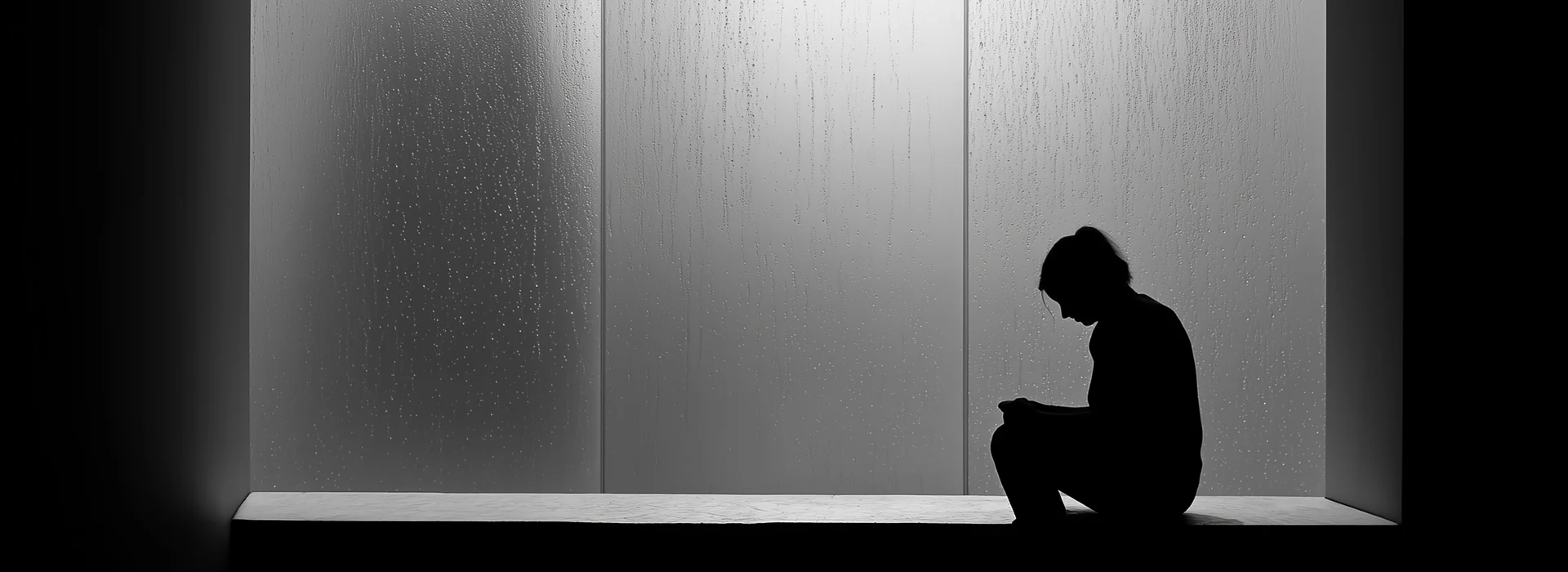
Table of Contents
- What to Expect During Alcohol Detox in LA
- Medical vs Non-Medical Detox Options in LA
- Managing Alcohol Withdrawal Symptoms Safely
- Cost of Alcohol Detox in Los Angeles
- Need to Detox?
- Navigating Admissions for Detox in Los Angeles
- When to Seek Medical Detox for Alcohol
- Is Alcohol Detox Safe at Home?
- Alcohol Recovery Stages Following Detox in LA
- Need Alcohol Addiction Help?
- Transitioning to Inpatient Rehab After Detox in LA
- Outpatient Support After Alcohol Detox in LA
- Therapeutic Support After Detox CBT and Motivational Interviewing
- Find Licensed Alcohol Detox Centers in Los Angeles

Choosing to begin alcohol detox is a deeply personal yet critical step toward recovery. In Los Angeles, access to professional care makes this journey more manageable and safer. Whether you’re seeking help for yourself or someone close to you, it’s important to understand that detox is not just about stopping alcohol use—it’s about doing so in a way that protects overall health and reduces risks.
Alcohol affects the body in powerful ways, and withdrawal can bring serious symptoms that are best monitored in a structured setting. Local alcohol detox programs in Los Angeles provide professional supervision to ensure symptoms are managed with care. These medically supervised detox options are especially important if someone has been drinking heavily or for a long time, as complications can arise quickly.
Why does supervised care matter so much? Trained clinicians can support both the physical and emotional aspects of withdrawal. They can monitor vital signs, ease discomfort, and intervene in case of medical emergencies. Detoxing without support often leads to relapse or increased harm. Choosing a licensed facility in LA ensures you or your loved one receives compassionate, evidence-informed attention from the very beginning of the recovery journey.
What to Expect During Alcohol Detox in LA
Entering alcohol detox in Los Angeles usually begins with a comprehensive intake process. Medical staff assess your physical health, alcohol use history, and psychiatric needs to tailor a personalized detox plan. This step is essential to determine whether you need a medically supervised detox or if a non-medical setting might suffice.
The detox timeline typically lasts 3 to 7 days, depending on the severity of alcohol dependence and individual health factors. During the first 6 to 24 hours, you may experience early alcohol withdrawal symptoms such as anxiety, restlessness, insomnia, and nausea. In moderate to severe cases, symptoms can escalate around days 2 to 3 and include elevated heart rate, tremors, confusion, and in rare cases, seizures or hallucinations.
Throughout detox, medical professionals in Los Angeles facilities closely monitor your vitals and manage detox symptoms with round-the-clock care. This can include IV fluids, medication to ease withdrawal, and mental health support, especially when co-occurring conditions are present. Comfort and safety are top priorities to prevent complications and facilitate stabilization.
By the final stages of detox, most individuals begin feeling physically more stable, though psychological support is still essential. Detox is just the beginning of the alcohol recovery process and often serves as the bridge into ongoing therapy or structured treatment programs. Learn About the Detox Process to help ease uncertainties and prepare you or your loved one for what lies ahead.
Medical vs Non-Medical Detox Options in LA
When considering alcohol detoxification in Los Angeles, understanding the difference between medical and non-medical (or social) detox is essential. Each approach offers unique benefits and is suited to different needs, depending on the severity of alcohol dependence and individual health risks.
Medical detox is generally recommended for individuals who have developed physical dependence on alcohol, especially those who may experience moderate to severe withdrawal symptoms. This option provides 24/7 supervision from healthcare professionals in inpatient alcohol detox settings, often within hospitals or licensed addiction treatment centers. These programs are equipped to manage life-threatening complications such as seizures, delirium tremens, or co-occurring medical issues using medications like benzodiazepines or anticonvulsants. For individuals with a long history of heavy alcohol use or with previous failed detox attempts, medically supervised detox offers a safer and more supported path toward stabilization.
On the other hand, non-medical or social detox is less intensive and focuses on emotional support and monitoring rather than medication. This approach may involve a structured environment with peer support and professional counselors but lacks the clinical intervention found in medical detox. It’s often suited for individuals with mild to moderate withdrawal symptoms and a stable home support system.
Choosing between these approaches should involve a professional assessment. Los Angeles offers a wide range of detox services tailored to the level of risk and support needed, helping individuals take the first step toward lasting alcohol addiction recovery in the safest way possible.

Managing Alcohol Withdrawal Symptoms Safely
Withdrawal from alcohol can produce a wide range of physical and emotional symptoms, some of which may require immediate medical attention. Common symptoms include anxiety, tremors, insomnia, sweating, nausea, and irritability. However, more severe reactions like hallucinations, seizures, or delirium tremens (DTs) can occur, particularly in individuals with a history of heavy or long-term alcohol use. These complications can be life-threatening if not managed appropriately.
Because the body and brain must adjust to functioning without alcohol, the detox process can place considerable stress on your system. That’s why medically supervised detox is highly recommended for most individuals starting their recovery. In a professional detox setting in Los Angeles, trained staff monitor vital signs, administer medications to ease discomfort, and prevent complications. This oversight creates a safer environment and reduces the risk of serious outcomes during the detox phase.
Anyone seeking to understand how to detox from alcohol should know that the goal isn’t just to stop drinking—it’s to do so in a way that’s safe, manageable, and supported. In Los Angeles, diverse alcohol detox programs offer tailored care plans that account for the severity of withdrawal symptoms and each person’s physical and mental health needs. This collaborative support plays a key role in laying the groundwork for a successful transition into long-term recovery and treatment.
Cost of Alcohol Detox in Los Angeles
The cost of alcohol detox in Los Angeles can vary widely depending on several factors, including the severity of your alcohol use, type of detox program, length of stay, and whether medical supervision is required. On average, you can expect to pay between $250 to $800 per day for medically supervised detox. Inpatient alcohol detox programs, which typically include 24/7 care in a residential setting, tend to cost more than outpatient alcohol detox due to the intensity of care and lodging fees.
Medical detox, especially when managing severe alcohol withdrawal symptoms, often requires licensed clinicians and medications, increasing overall expenses. Outpatient detox may be more affordable and flexible, but it’s not always appropriate for people with a high risk of complications from withdrawal. Insurance can significantly reduce out-of-pocket costs, and many alcohol detox centers in Los Angeles accept a range of private and public insurance plans, including Medicaid and Medicare.
Some local programs offer sliding-scale fees based on income or provide financial aid resources for those who qualify. Nonprofit or county-funded detox services may be available to reduce access barriers for underserved populations. If you’re exploring how to detox from alcohol, it’s important to assess both the clinical needs and financial fit of the program. Understanding your insurance coverage and asking providers upfront for cost breakdowns can help you make an informed decision.
Navigating Admissions for Detox in Los Angeles
Starting alcohol detox in Los Angeles can feel overwhelming, but understanding the admissions process can help you take the first step confidently. Many alcohol detox programs in Los Angeles offer 24/7 admissions support, empowering individuals and their loved ones to begin treatment promptly—even on the same day when medically appropriate. Initial contact may happen over the phone or online, with staff guiding you through each stage of the intake process.
Once you reach out, most facilities will start with a pre-admission assessment. This typically involves questions about your health history, recent alcohol use, and any co-occurring conditions. The goal is to determine whether inpatient alcohol detox or an outpatient alternative would better address your needs. Following this, you’ll be asked to complete intake paperwork, which may include insurance verification, medical consent forms, and facility policies.
Timelines for entry can vary, but urgent cases involving severe alcohol withdrawal may be prioritized for immediate admission to a medically supervised detox unit. In other cases, you might receive a scheduled intake date within a few days. If you’re also considering longer-term alcohol addiction treatment beyond detox, many centers will help coordinate that transition as part of the admission planning. Knowing what to expect up front makes it easier to take action toward recovery with clarity and peace of mind.
When to Seek Medical Detox for Alcohol
Acute alcohol withdrawal can pose serious health risks, especially for individuals with a history of heavy or long-term drinking. Seeking medically supervised detox is critical if you’re experiencing severe symptoms such as seizures, hallucinations, or intense disorientation. These signs can indicate a condition called delirium tremens, which can be life-threatening without immediate medical support.
You should also consider medical detox if you’ve tried and failed to detox before, have co-occurring mental or physical health issues, or are heavily dependent on alcohol to function daily. A professional setting ensures continuous monitoring by clinicians who can manage complications and provide medications to ease withdrawal symptoms, making the process safer and less painful.
Attempting to detox at home, especially after prolonged or intense alcohol use, can be dangerous. Dehydration, blood pressure spikes, and psychological distress are difficult to manage alone and may escalate quickly. While outpatient alcohol detox may be an option for those with mild to moderate symptoms, inpatient alcohol detox is often recommended when the risks are higher.
Choosing the right level of care increases your chances of a safe recovery and successful transition into alcohol addiction treatment. Identifying your needs honestly—and seeking help early—can prevent unnecessary suffering and medical emergencies.

Is Alcohol Detox Safe at Home?
Detoxing from alcohol at home can seem like a convenient and private option, but for many people, it carries serious medical and psychological risks. Alcohol withdrawal symptoms vary widely in intensity and can escalate quickly. In some cases, individuals may experience hallucinations, seizures, or a dangerous condition known as delirium tremens (DTs), which requires immediate medical attention. Without the oversight of a medically supervised detox team, these complications can be life-threatening.
Another concern is the lack of emotional and therapeutic support when attempting detox from home. Feelings of anxiety, depression, or cravings during early withdrawal may increase the risk of relapse. Professional detox programs in Los Angeles are equipped to provide continuous medical monitoring, manage withdrawal symptoms safely, and offer access to counseling or therapeutic interventions.
Home detox may be considered only in very mild cases and under the guidance of a healthcare provider. However, most people with moderate to severe alcohol use disorder are strongly advised to seek structured care. Inpatient alcohol detox ensures safety and comfort during withdrawal, while outpatient alcohol detox may be appropriate for those with less severe symptoms and a strong support network. Speaking with a treatment professional can help determine the safest path based on your individual needs.
Alcohol Recovery Stages Following Detox in LA
Detox is often just the first step toward long-term recovery from alcohol use. Once the body is free of alcohol, ongoing support and active treatment are crucial to address the psychological and behavioral patterns linked to alcohol dependence. In Los Angeles, several alcohol rehab programs are available to support individuals in continuing their recovery journey.
After detox, many people transition to inpatient or outpatient rehab programs. Inpatient treatment can offer a stable, structured environment for those needing comprehensive care, while outpatient programs are ideal for those who need flexibility or have already developed some coping skills. Both options usually include individual and group therapy, relapse prevention planning, and holistic treatments.
It’s also common for treatment to incorporate evidence-based therapies like cognitive behavioral therapy (CBT) or motivational interviewing to help reframe thoughts and behaviors tied to substance use. Recovery is a long-term process, and relapse prevention, peer support, and lifestyle changes become central elements after detox. Understanding the full continuum of care helps individuals move from detox toward sustained sobriety with the right strategies and support systems in place.
Transitioning to Inpatient Rehab After Detox in LA
Completing alcohol detox is a pivotal step, but for many, it’s only the beginning of recovery. Transitioning directly into inpatient rehab after detox helps maintain early sobriety by offering a tightly structured environment and continued medical and emotional support. Inpatient Rehab in Los Angeles provides 24/7 care, which is especially helpful for individuals at high risk of relapse or those with co-occurring mental health conditions.
This level of care typically introduces comprehensive therapies such as individual counseling, group therapy, and skill-building sessions. It serves as a bridge from the stabilization gained during detox to longer-term recovery efforts, allowing clients to focus deeply on the factors contributing to alcohol use.
Inpatient treatment is often recommended for clients with a long history of alcohol use, multiple previous relapses, or a lack of a stable home environment for recovery. For many in Los Angeles seeking a strong start after detox, inpatient rehab offers the level of consistency and care needed to build lasting change.
Outpatient Support After Alcohol Detox in LA
Completing alcohol detox is a critical first step, but maintaining recovery requires ongoing care. Outpatient programs in Los Angeles offer flexible, less intensive follow-up options for people who no longer need around-the-clock supervision. This form of care bridges the gap between detox and long-term recovery by providing structured support while allowing clients to continue with work, school, or family life.
Outpatient Care Following Detox often includes regular counseling, relapse prevention strategies, group therapy, and access to peer recovery communities. These services support your mental and emotional well-being as you adjust to life without alcohol. Stress triggers and social pressures are common after detox, and outpatient programs are designed to help you manage these effectively.
Many people transition into outpatient care after completing inpatient alcohol detox or residential treatment. This continuity helps reinforce healthy routines, provides accountability, and strengthens coping skills. Choosing an outpatient alcohol detox program tailored to your needs can increase your chances of sustained sobriety while promoting gradual reintegration into everyday responsibilities—especially important in a city as fast-paced and diverse as Los Angeles.

Therapeutic Support After Detox: CBT and Motivational Interviewing
Using CBT After Alcohol Detox in LA Recovery
Cognitive therapy in LA recovery is a core therapeutic approach often introduced shortly after alcohol detox. It helps individuals in Los Angeles recognize distorted thinking patterns that can lead to relapse and teaches practical strategies to cope with cravings and emotional triggers. Through structured sessions, clients learn to challenge negative beliefs and replace them with more balanced, adaptive thoughts. Integrating CBT into post-detox care supports more stable recovery by directly addressing the psychological roots of alcohol use.
Motivational Interviewing to Sustain Sobriety in LA
Motivational interviewing after detox is a person-centered therapy that encourages self-directed change by exploring a person’s own reasons for pursuing a sober life. After detox, many individuals face uncertainty about maintaining sobriety or engaging in long-term treatment. MI helps reduce resistance by tapping into personal values, increasing internal motivation, and setting realistic goals. In Los Angeles, MI is frequently used alongside other therapies in alcohol addiction treatment to support lasting healing and empowerment.

Find Licensed Alcohol Detox Centers in Los Angeles
Starting alcohol detox can feel overwhelming, but choosing a licensed facility in Los Angeles ensures you get the care you deserve. Whether you’re looking for inpatient support, outpatient options, or medically supervised detox, there are reputable local programs to fit your needs. Many centers can walk you through the process—from verifying insurance to arranging same-day admissions.
You don’t have to make this decision alone. Support is available to help you understand what detox involves, what to expect in terms of withdrawal symptoms, and how to move forward after detox with alcohol addiction treatment. Whether you’re just starting to explore how to detox from alcohol or ready to take the next step, certified professionals across greater Los Angeles can provide safe, compassionate care.
Take a moment to find a center that aligns with your needs—by location, level of care, or insurance coverage. That first search can be the start of a life-changing recovery journey.










































